The Silent Struggle of High-Achievers
Imagine this: you’re a driven professional, someone who thrives on challenges and consistently pushes boundaries. You’re in a critical meeting, the stakes are high, and your mind feels… fuzzy. Ideas that usually flow effortlessly are now elusive. You struggle to recall important details, and a persistent mental sluggishness shadows your usually sharp intellect.
This scenario, unfortunately, is a common reality for many high-achieving individuals. The relentless demands of ambitious careers and the societal pressure to always be on top of their game can often lead to a pervasive yet frequently overlooked challenge: brain fog 1.
Brain fog, while not a medical diagnosis in itself, represents a cluster of symptoms that can significantly impair thinking, memory, and concentration 1. It’s that frustrating feeling of your mental gears grinding, making it difficult to perform at the level you know you’re capable of. This blog post is designed to be your guide in navigating this challenge.
Here, you’ll discover actionable, science-backed strategies to not only overcome brain fog but also to achieve sustained optimal mental performance. As a health and fitness coach who works closely with high-achievers like yourself, I understand the unique pressures you face and am here to provide the insights and tools to help you regain your mental clarity and unlock your full potential.
Understanding the Enemy: What Exactly is Brain Fog and Why Does it Plague High-Achievers?

Brain fog can be described simply as a state of mental confusion or a lack of sharpness in thinking 1. It’s not a medical condition on its own but rather a collection of symptoms that indicate an underlying issue 1. Individuals experiencing brain fog often report a variety of cognitive difficulties.
Common symptoms include trouble concentrating on tasks, finding it hard to stay focused, and experiencing forgetfulness, such as difficulty remembering names, places, or words 3. Thinking may feel unusually slow, and there’s often a general lack of mental clarity, a sense of being mentally “cloudy” or “foggy” 8. Many also struggle with word recall, having difficulty finding the right words to express themselves 8.
High-achievers are particularly vulnerable to brain fog due to several factors inherent in their demanding lifestyles 2. Chronic stress and the constant pressure to perform at a high level lead to elevated levels of cortisol, a stress hormone that, when consistently high, can negatively impact brain function, particularly memory and focus 2.
Burnout, a state of emotional, mental, and physical exhaustion resulting from prolonged or excessive stress, is another significant contributor. This state of depletion directly impairs cognitive abilities, often manifesting as brain fog 16.
Inconsistent sleep patterns are also a major issue for high-achievers. Long work hours, frequent travel, and the pressure to always be available often disrupt the body’s natural sleep-wake cycle. Sleep is essential for cognitive restoration, and insufficient or poor-quality sleep can significantly impair concentration and mental clarity 1. Furthermore, busy schedules can often lead to poor nutritional choices.
Neglecting a balanced diet that includes essential nutrients for brain health can directly contribute to brain fog 1. Finally, a lack of regular physical activity, often a consequence of demanding work lives, can reduce blood flow to the brain, further exacerbating cognitive sluggishness 1.
Table 1: Common Symptoms of Brain Fog
| Symptom | Description |
| Difficulty Concentrating | Trouble focusing on tasks or maintaining attention. |
| Forgetfulness | Difficulty remembering recent events, names, or details. |
| Mental Fatigue | Feeling mentally exhausted or drained, even after adequate rest. |
| Slow Thinking | Processing information feels slower than usual. |
| Lack of Mental Clarity | A general sense of fogginess or cloudiness in thinking. |
| Trouble Finding Right Words | Difficulty recalling specific words or expressing thoughts clearly. |
The Vicious Cycle: How Stress and Burnout Fuel Brain Fog in Professionals.

Stress, burnout, and brain fog often exist in a tightly interwoven relationship, creating a negative cycle that can be difficult to break 2. Chronic stress triggers the release of hormones like cortisol, which, while initially helpful in short bursts, can become detrimental to cognitive function when sustained over long periods. This hormonal imbalance can directly impair memory consolidation and the ability to focus effectively 2.
Burnout, with its core components of emotional exhaustion, a cynical attitude towards work, and a diminished sense of personal accomplishment, frequently manifests as brain fog 16. The mental fatigue associated with burnout can cloud thinking, making it difficult to concentrate and process information efficiently.
Ironically, brain fog itself can further intensify feelings of stress and inadequacy 5. When high-achievers experience a decline in their cognitive abilities, it can lead to increased anxiety about their performance and the fear of not meeting expectations, thus perpetuating the cycle of stress and brain fog.
Think of your brain like a high-performance computer. When you run too many demanding applications simultaneously without adequate processing power or cooling, the system slows down, becomes sluggish, and may even freeze.
Similarly, the constant demands and pressures faced by high-achieving professionals can overload their mental capacity, leading to the cognitive slowdown we recognize as brain fog. Understanding this interconnectedness is the first crucial step in taking control and implementing effective strategies to restore mental clarity.
Unlock Your Mental Clarity: Science-Backed Strategies to Banish Brain Fog.
The good news is that brain fog is not an insurmountable obstacle. By adopting a holistic approach that addresses the root causes, high-achievers can effectively banish brain fog and unlock their full mental potential.
The Foundation: Prioritizing Sleep for Cognitive Restoration.

Quality sleep is the bedrock of optimal cognitive function. Aiming for 7-9 hours of restful sleep each night is not a luxury but a fundamental requirement for your brain to function at its best 27. During sleep, your brain consolidates memories, clears out metabolic waste products, and prepares you for the day ahead 28. Inconsistent or insufficient sleep disrupts these vital processes, leading directly to impaired concentration and brain fog 30.
To prioritize sleep, establishing a consistent sleep schedule is crucial. Going to bed and waking up around the same time every day, even on weekends, helps regulate your body’s natural sleep-wake cycle 27. Optimizing your sleep environment by ensuring your bedroom is dark, quiet, and cool can also significantly improve sleep quality 33.
Limiting exposure to blue light emitted from electronic devices like smartphones and laptops at least an hour before bed is also essential, as this light can interfere with the production of melatonin, a hormone that promotes sleep 33. Avoiding caffeine and alcohol, especially in the hours leading up to bedtime, is also recommended, as these substances can disrupt sleep patterns 27. Finally, establishing a relaxing bedtime routine, such as reading a book, taking a warm bath, or practicing gentle stretching, can signal to your body that it’s time to wind down 27.
Table 2: Key Sleep Hygiene Tips for Cognitive Restoration
| Tip | Benefit for Cognitive Function |
| Consistent Sleep Schedule | Regulates the body’s natural sleep-wake cycle, leading to more restful and restorative sleep. |
| Optimize Sleep Environment | Creates a conducive environment for sleep, promoting deeper and less interrupted rest. |
| Limit Screen Time | Reduces exposure to blue light, which can interfere with melatonin production and sleep onset. |
| Avoid Caffeine & Alcohol | Prevents disruption of sleep cycles and promotes more stable sleep throughout the night. |
| Relaxing Bedtime Routine | Signals to the body that it’s time to wind down, making it easier to fall asleep. |
Fueling Your Focus: Nutritional Strategies to Combat Brain Fog.

The connection between your gut and your brain is profound, and what you eat plays a significant role in your cognitive function 42. A balanced, nutrient-dense diet provides the essential building blocks for optimal brain health. Incorporating foods rich in omega-3 fatty acids, such as fatty fish like salmon, flaxseeds, and walnuts, is beneficial as these fats are crucial for brain cell health 42.
Antioxidant-rich foods like berries and leafy greens help protect brain cells from damage caused by oxidative stress 42. B vitamins, found in foods like leafy greens, eggs, and legumes, are vital for energy production and neurotransmitter function in the brain 43. Staying properly hydrated by drinking enough water and herbal teas throughout the day is also essential for maintaining cognitive function 6.
Conversely, limiting your intake of processed foods, sugary drinks, and excessive amounts of caffeine and alcohol can help reduce inflammation and prevent energy crashes that contribute to brain fog 34. While a nutrient-rich diet should be the foundation, some individuals may benefit from specific supplements. Omega-3 fatty acids, Vitamin D, B complex vitamins, and Magnesium are examples of supplements that have shown potential in supporting brain health and reducing brain fog symptoms 11.
However, it is crucial to consult with a healthcare professional before starting any new supplement regimen to ensure it’s appropriate for your individual needs and to avoid any potential interactions 2. The concept of personalized nutrition, tailoring dietary plans based on individual needs, is gaining prominence, highlighting the importance of finding what works best for your body 59.
Table 3: Key Brain-Boosting Foods and Their Cognitive Benefits
| Food Group | Examples | Key Nutrients | Cognitive Benefits |
| Omega-3 Fatty Acids | Salmon, mackerel, flaxseeds, walnuts | DHA, EPA | Support brain cell structure and function, improve memory and attention. |
| Antioxidant-Rich | Berries (blueberries, strawberries), leafy greens | Flavonoids, Vitamin E, Vitamin C | Protect brain cells from oxidative stress, reduce inflammation. |
| B Vitamins | Leafy greens, eggs, legumes | B6, B12, Folate | Crucial for energy production in neurons, support neurotransmitter synthesis. |
| Hydration | Water, herbal teas | Water | Essential for overall brain function, prevents dehydration-related cognitive impairment. |
Move to Think: The Power of Exercise for Enhanced Mental Performance.

Regular physical activity is not just beneficial for your physical health; it’s also a powerful tool for enhancing your mental performance 3. Exercise increases blood flow to the brain, delivering essential oxygen and nutrients that support cognitive function 18. It has also been shown to improve mood, promote better sleep, and enhance various cognitive functions, including problem-solving, focus, learning, and memory 27.
Incorporating a variety of exercises into your routine can be particularly beneficial. Aerobic activities like brisk walking, running, or cycling increase your heart rate and improve cardiovascular health, which directly benefits brain function 32. Strength training helps maintain muscle mass, which is important for overall health and can indirectly support cognitive function 32.
Mindful movement practices such as yoga and Pilates not only improve physical flexibility and balance but also integrate mental and spiritual elements, aiding in stress reduction and emotional balance 32. Aim for at least 150 minutes of moderate-intensity aerobic activity each week 27.
Even short bursts of physical activity throughout the day can provide a cognitive boost 27. The trend of holistic fitness, which emphasizes the interconnectedness of mind, body, and spirit, underscores the importance of a comprehensive approach to exercise 53.
Finding Your Center: Mindfulness and Meditation for Clarity.

Mindfulness and meditation are increasingly recognized as potent techniques for reducing stress, improving focus, and enhancing overall mental clarity 17. These practices help train your brain to focus on the present moment without judgment, reducing the mental clutter that contributes to brain fog 63. By regularly engaging in mindfulness, you can improve your attention span, enhance emotional regulation, and cultivate a greater sense of calm amidst the demands of a high-pressure career 65.
Simple mindfulness techniques can be easily incorporated into your daily routine. Focused breathing involves bringing your attention to the sensation of your breath as it enters and leaves your body 64. A body scan meditation involves focusing your attention on different parts of your body, noticing any sensations without judgment 64.
Mindful walking involves paying attention to the physical sensations of walking, such as the movement of your feet and legs 64. Even dedicating just a few minutes each day to these practices can yield significant benefits 66. Numerous guided meditation apps are available to help beginners get started and provide structured sessions 64. The increasing focus on mental health has made mindfulness and meditation mainstream practices for stress reduction and improved well-being 59.
Creating Your Optimal Environment: The Impact of Ergonomics.

The physical environment in which you work can have a significant impact on your mental clarity. Poor ergonomics can lead to physical discomfort, such as back pain and eye strain, which in turn can contribute to increased stress levels and decreased mental focus 69. Creating an ergonomically optimized workspace can reduce physical strain and promote better mental well-being 69.
Practical tips for an ergonomic setup include using an adjustable chair and desk that allow you to maintain proper posture 69. Your computer monitor should be positioned at an appropriate height and distance to minimize neck and eye strain 69.
Using an ergonomic keyboard and mouse can help prevent wrist and arm discomfort 82. Ensuring good lighting and minimizing distractions in your workspace can also improve focus 69. Finally, taking regular breaks to stand up, move around, and stretch is essential for preventing fatigue and maintaining mental alertness 27.
Even small adjustments to your workspace can lead to improved comfort and productivity 82. Investing in an ergonomic setup is an investment in your long-term cognitive health and productivity 83.
Beyond the Basics: Exploring Advanced Avenues for Cognitive Enhancement.
For high-achievers who are already implementing foundational strategies and seeking further optimization, exploring advanced avenues for cognitive enhancement can be beneficial.
The Promise of Nootropics: A Balanced Perspective.

Nootropics, often referred to as “smart drugs” or cognitive enhancers, are substances that may improve cognitive functions, such as memory, focus, and alertness 11. These can include both synthetic compounds and natural supplements. Some science-backed nootropics that have shown potential in enhancing cognitive function include Citicoline, which supports focus and attention; L-theanine, known for promoting relaxed alertness; Omega-3 fatty acids, essential for overall brain health; B vitamins, crucial for brain energy; and Creatine, which may benefit memory and processing speed 11.
While nootropics may offer a cognitive boost, it is paramount to approach their use with caution. Consulting a healthcare professional before incorporating any new supplements into your routine is essential, as they can provide guidance based on your individual health status, potential interactions with other medications, and specific cognitive goals 2.
It’s important to maintain a balanced perspective, recognizing that while some nootropics show promise, further research is often needed to fully understand their long-term effects and optimal usage 57. The trend of biohacking, which involves using science and technology to optimize human performance, includes the exploration of nootropics 53.
Decoding Your Body: Leveraging Wearable Tech for Mental Well-being.

Wearable technology, such as smartwatches and fitness trackers, offers another avenue for high-achievers to gain insights into their well-being and potentially optimize their mental performance 59. These devices can monitor various physiological signals that are relevant to cognitive function and stress levels.
Key metrics that wearables often track include sleep patterns, providing data on sleep duration and quality; heart rate variability (HRV), which can be an indicator of stress levels; and activity levels, helping you understand your movement patterns 61.
By tracking these metrics over time, you can gain valuable self-awareness, identify potential stress triggers, and monitor how lifestyle changes, such as improved sleep or increased exercise, are impacting your mental clarity 61. Some wearable devices also offer personalized feedback and insights based on your data, helping you make informed decisions about your well-being 61.
The integration of wearable technology into fitness and wellness routines is a growing trend, offering a data-driven approach to self-optimization 61.
Sustainable Success: Integrating Mindful Productivity and Strategic Rest.
Achieving long-term peak performance without succumbing to burnout requires more than just addressing brain fog in isolation. It involves integrating strategies for mindful productivity and prioritizing strategic rest into your daily life.
Time Management Tactics to Reduce Mental Overload.

Effective time management is crucial for reducing stress, preventing mental fatigue, and ultimately combating brain fog 50. For high-achievers with demanding schedules, mastering time management can significantly alleviate mental overload. Several techniques can be highly effective. Prioritizing tasks based on their importance and urgency, such as using the Eisenhower Matrix, ensures that you focus your energy on what truly matters 105.
Time blocking involves scheduling specific blocks of time for particular tasks, allowing for focused attention and minimizing distractions 60. Breaking down large, complex projects into smaller, more manageable steps can make them feel less overwhelming and easier to tackle 27.
The Pomodoro Technique, which involves working in focused 25-minute intervals followed by short breaks, can help maintain concentration and prevent burnout 60. Setting clear boundaries between work and personal life and learning to say no to non-essential commitments is also vital for protecting your time and energy 116. Finally, delegating tasks whenever possible can free up your time and mental resources for higher-priority activities 116.
Table 4: Time Management Tactics to Reduce Mental Overload
| Technique | Explanation | Benefit for Mental Clarity |
| Prioritizing Tasks | Focusing on the most important and urgent tasks first. | Reduces feeling overwhelmed and ensures crucial tasks are addressed. |
| Time Blocking | Scheduling specific time slots for particular tasks. | Enhances focus by dedicating specific periods to single tasks. |
| Breaking Down Tasks | Dividing large projects into smaller, more manageable steps. | Makes tasks feel less daunting and easier to initiate and complete. |
| Pomodoro Technique | Working in focused intervals (e.g., 25 minutes) followed by short breaks. | Improves concentration and prevents mental fatigue through regular breaks. |
| Setting Clear Boundaries | Establishing limits on work hours and availability. | Protects personal time and prevents burnout from overwork. |
| Delegation | Assigning tasks to others when appropriate. | Reduces workload and frees up mental resources for higher-priority items. |
The Power of Sleep Banking: Strategic Rest for Peak Cognitive Function.

In today’s demanding professional landscape, occasional sleep deprivation can be unavoidable. The concept of “sleep banking” offers a proactive strategy to mitigate the negative effects of such periods 41. Sleep banking involves intentionally getting extra sleep in the days or weeks leading up to a period when you anticipate getting less sleep than usual 121.
This extra sleep can create a buffer that helps your body and mind better cope with the subsequent sleep loss, reducing the impact on your cognitive and physical performance 121. Strategies for sleep banking include adding an extra hour or two of sleep on weekends or other days when your schedule allows, and strategically utilizing short naps during the day 121.
It’s important to note that sleep banking is a strategic tool for specific situations and should not be viewed as a replacement for consistent, adequate sleep 41. Viewing rest as a strategic asset can provide a competitive edge in your career, allowing you to perform at your peak even during challenging periods.
Conclusion: Reclaim Your Mental Edge and Achieve Your Full Potential.
Overcoming brain fog and achieving optimal mental performance is a journey that requires a multifaceted approach. By prioritizing quality sleep, adopting a brain-boosting diet, incorporating regular physical activity, practicing mindfulness, optimizing your work environment, and strategically managing your time and rest, you can effectively banish brain fog and reclaim your mental edge. These science-backed strategies, when implemented consistently, will not only enhance your cognitive function but also contribute to your overall well-being and sustainable success in your high-achieving endeavors.
If you’re ready to take the next step and want personalized guidance in implementing these strategies and achieving optimal mental performance, I invite you to learn more about my 1-1 coaching program. Together, we can develop a tailored plan to help you conquer brain fog, unlock your full potential, and thrive in your demanding career.
Works cited
- Brain fog | healthdirect, accessed March 29, 2025, https://www.healthdirect.gov.au/brain-fog
- Brain Fog: 6 Potential Causes – Healthline, accessed March 29, 2025, https://www.healthline.com/health/brain-fog
- Brain Fog: What It Is, Causes, Symptoms & Treatment – Cleveland Clinic, accessed March 29, 2025, https://my.clevelandclinic.org/health/symptoms/brain-fog
- Brain Fog – Psychology Today, accessed March 29, 2025, https://www.psychologytoday.com/us/basics/brain-fog
- Brain Fog and Productivity: Strategies for Improving Focus and Mental Performance at Work, accessed March 29, 2025, https://www.coachhub.com/blog/brain-fog/
- What Is Foggy Brain? How To Prevent Brain Fog In The Workplace – A Healthy View, accessed March 29, 2025, https://www.ahealthyview.com/blog/what-is-foggy-brain
- Foggy Focus? 5 Ways to Deal with Brain Fog at Work – Vantage Fit, accessed March 29, 2025, https://www.vantagefit.io/blog/brain-fog-at-work/
- Descriptors of brain fog (n = 138) | Download Table – ResearchGate, accessed March 29, 2025, https://www.researchgate.net/figure/Descriptors-of-brain-fog-n-138_tbl1_256378234
- Caught in the thickness of brain fog: exploring the cognitive symptoms of Chronic Fatigue Syndrome – PMC – PubMed Central, accessed March 29, 2025, https://pmc.ncbi.nlm.nih.gov/articles/PMC3617392/
- Subjective brain fog: a four-dimensional characterization in 25,796 participants – PMC, accessed March 29, 2025, https://pmc.ncbi.nlm.nih.gov/articles/PMC11191638/
- Brain Fog: Solutions to Help You Improve Concentration | Bangkok International Hospital, accessed March 29, 2025, https://www.bangkokinternationalhospital.com/health-articles/disease-treatment/brain-fog-syndrome
- What is brain fog? An evaluation of the symptom in postural tachycardia syndrome – PMC, accessed March 29, 2025, https://pmc.ncbi.nlm.nih.gov/articles/PMC3896080/
- Brain fog in central disorders of hypersomnolence: a review, accessed March 29, 2025, https://jcsm.aasm.org/doi/10.5664/jcsm.11014
- What is brain fog? | Journal of Neurology, Neurosurgery & Psychiatry, accessed March 29, 2025, https://jnnp.bmj.com/content/94/4/321
- How Are Brain Fog Symptoms Related to Diet, Sleep, Mood and Gastrointestinal Health? A Cross-Sectional Study – MDPI, accessed March 29, 2025, https://www.mdpi.com/1648-9144/61/2/344
- Clearing Brain Fog: How to Overcome a Mental Block in the Workplace – WellRight, accessed March 29, 2025, https://www.wellright.com/resources/blog/clearing-brain-fog-how-to-overcome-a-mental-block-in-the-workplace
- Decoding Brain Fog: Origins, Neurological Mechanisms, and Recovery, accessed March 29, 2025, https://www.pacificneuroscienceinstitute.org/blog/lifestyle/decoding-brain-fog-origins-neurological-mechanisms-and-recovery/
- Can Burnout Cause Brain Fog? Understanding the Connection and How to O – Cymbiotika, accessed March 29, 2025, https://cymbiotika.com/blogs/health-hub/can-burnout-cause-brain-fog-understanding-the-connection-and-how-to-overcome-it
- Cognitive fatigue: Contending burnout & retain talent – Working To Wellbeing, accessed March 29, 2025, https://www.working2wellbeing.com/cognitive-fatigue-contending-with-burnout-and-retain-talent/
- Burnout and the Brain – Association for Psychological Science, accessed March 29, 2025, https://www.psychologicalscience.org/observer/burnout-and-the-brain
- Executive burnout – Causes, First symptoms and treatments – The Kusnacht Practice, accessed March 29, 2025, https://kusnachtpractice.com/articles/executive-burnout-effects-symptoms-and-treatment/
- Job burnout: How to spot it and take action – Mayo Clinic, accessed March 29, 2025, https://www.mayoclinic.org/healthy-lifestyle/adult-health/in-depth/burnout/art-20046642
- Thinking Against Burnout? An Individual’s Tendency to Engage in and Enjoy Thinking as a Potential Resilience Factor of Burnout Symptoms and Burnout-Related Impairment in Executive Functioning – Frontiers, accessed March 29, 2025, https://www.frontiersin.org/journals/psychology/articles/10.3389/fpsyg.2019.00420/full
- We love management jobs. But do we silently suffer from executive burnouts? – Experteer, accessed March 29, 2025, https://us.experteer.com/magazine/love-management-jobs-silently-suffer-executive-burnouts/
- Strategies for Executive Self-Care: Nurturing Well-Being in High-Pressure Roles, accessed March 29, 2025, https://careercenter.wofford.edu/blog/2023/09/20/strategies-for-executive-self-care-nurturing-well-being-in-high-pressure-roles/
- From Burnout to Bliss: How Taking a Sabbatical Transformed My Life – eLeaP®, accessed March 29, 2025, https://www.eleapsoftware.com/glossary/from-burnout-to-bliss-how-taking-a-sabbatical-transformed-my-life/
- 6 ways to manage brain fog | News & articles | UnitedHealthcare, accessed March 29, 2025, https://www.uhc.com/news-articles/healthy-living/6-ways-to-manage-brain-fog
- Sleep Your Way to a Smarter Brain | American Heart Association, accessed March 29, 2025, https://www.heart.org/en/healthy-living/healthy-lifestyle/sleep/sleep-your-way-to-a-smarter-brain
- Clearing the Fog: Understanding and Overcoming Brain Fog | Isaac Health, accessed March 29, 2025, https://www.myisaachealth.com/clearing-the-fog-understanding-and-overcoming-brain-fog/
- How Lack of Sleep Impacts Cognitive Performance and Focus, accessed March 29, 2025, https://www.sleepfoundation.org/sleep-deprivation/lack-of-sleep-and-cognitive-impairment
- The Importance of Good Sleep for Brain Health – MyBrainDR, accessed March 29, 2025, https://mybraindr.com/2023/07/17/the-importance-of-good-sleep-for-brain-health/
- Improving Cognitive Fitness: Achieving Sharper Brain Health – Pacific Hearing, Inc., accessed March 29, 2025, https://pacifichearinginc.com/patient-resources/industry-news/improving-cognitive-fitness-achieving-sharper-brain-health/
- Sleep Optimization: Techniques for Better Quality Rest – AFC Urgent Care, accessed March 29, 2025, https://www.afcurgentcare.com/nanuet/blog/sleep-optimization-techniques-for-better-quality-rest/
- The 20 Ultimate Tips for How to Sleep Better – Sleep Foundation, accessed March 29, 2025, https://www.sleepfoundation.org/sleep-hygiene/healthy-sleep-tips
- How Sleep Quality Can Boost Cognitive Performance | Blog – TalktoAngel, accessed March 29, 2025, https://www.talktoangel.com/blog/how-sleep-quality-can-boost-cognitive-performance
- Optimize Sleep – SAIC, accessed March 29, 2025, https://www.saic.com/sites/default/files/2020-04/Coronavirus%20Optimize%20Sleep.pdf
- A practical guide to improve sleep and performance in athletes – ResearchGate, accessed March 29, 2025, https://www.researchgate.net/publication/375099817_A_practical_guide_to_improve_sleep_and_performance_in_athletes
- Sleep, Athletic Performance, and Recovery – Sleep Foundation, accessed March 29, 2025, https://www.sleepfoundation.org/physical-activity/athletic-performance-and-sleep
- Boost Your Brainpower: 24 Daily Sleep Hacks for Active Lifestyles – MDPI, accessed March 29, 2025, https://www.mdpi.com/2076-3417/14/15/6701
- Sleep Health in High Performance Populations—Considerations to Optimize Athletic Potential – National Strength and Conditioning Association, accessed March 29, 2025, https://www.nsca.com/education/articles/tsac-report/sleep-health-in-high-performance-populationsconsiderations-to-optimize-athletic-potential/
- Sleep Hygiene for Optimizing Recovery in Athletes: Review and Recommendations – PMC, accessed March 29, 2025, https://pmc.ncbi.nlm.nih.gov/articles/PMC6988893/
- Foods That Improve Memory | Mass General Brigham, accessed March 29, 2025, https://www.massgeneralbrigham.org/en/about/newsroom/articles/foods-that-improve-memory
- Boost Your Brain Power: Proven Strategies for Optimal Nutrition, accessed March 29, 2025, https://www.hydroassoc.org/boost-brain-power-strategies-for-nutrition/
- Nutritional Strategies for Mental Performance and Long-Term Brain Health – APIM, accessed March 29, 2025, https://worldlinkmedical.com/nutritional-strategies-for-mental-performance-and-long-term-brain-health/
- The Benefits of Neuronutrition for Mental Clarity: How to Reduce Brain Fog, accessed March 29, 2025, https://happihuman.com/blog/the-benefits-of-nutrition-for-mental-clarity-how-to-reduce-brain-fog
- Physical Activity Boosts Brain Health – CDC, accessed March 29, 2025, https://www.cdc.gov/physical-activity/features/boost-brain-health.html
- The Influence of Exercise on Cognitive Abilities – PMC – PubMed Central, accessed March 29, 2025, https://pmc.ncbi.nlm.nih.gov/articles/PMC3951958/
- How Does Exercise Improve Mental Health? – HelpGuide.org, accessed March 29, 2025, https://www.helpguide.org/wellness/fitness/the-mental-health-benefits-of-exercise
- Physical Activity Improves Brain and Cognitive Functions | Extension | University of Nevada, Reno, accessed March 29, 2025, https://extension.unr.edu/publication.aspx?PubID=2921
- Understanding Brain Fog: Causes & Effective Solutions, accessed March 29, 2025, https://lonestarneurology.net/others/the-science-of-brain-fog-causes-and-solutions/
- 5 Science-Backed Strategies to Improve Focus – Cognizin, accessed March 29, 2025, https://cognizin.com/news/post/unlock-your-full-potential-5-strategies-improve-focus
- How to Improve Mental Clarity and Focus: Strategies for a Sharper Mind – Cymbiotika, accessed March 29, 2025, https://cymbiotika.com/blogs/health-hub/how-to-improve-mental-clarity-and-focus-strategies-for-a-sharper-mind
- 2025 Health Trends: The Future of Wellness Unveiled – Plunge, accessed March 29, 2025, https://plunge.com/blogs/blog/health-wellness-trends
- Ten Key Health and Nutrition Trends for 2025 – KHNI, accessed March 29, 2025, https://khni.kerry.com/trends-and-insights/ten-key-health-and-nutrition-trends-of-this-year/
- 6 Helpful Supplements for Brain Fog – Healthline, accessed March 29, 2025, https://www.healthline.com/nutrition/vitamins-for-brain-fog
- Supplements for Brain Fog: What Works? – Rupa Health, accessed March 29, 2025, https://www.rupahealth.com/post/supplements-for-brain-fog
- A Systematic Review of the Effect of Dietary Supplements on Cognitive Performance in Healthy Young Adults and Military Personnel – PubMed Central, accessed March 29, 2025, https://pmc.ncbi.nlm.nih.gov/articles/PMC7071459/
- How to Think Clearly Again: Natural Ways to Get Rid of Brain Fog – UnityPoint Health, accessed March 29, 2025, https://www.unitypoint.org/news-and-articles/how-to-think-clearly-again-natural-fixes-for-brain-fog
- Top Wellness Trends of 2024 and Predictions for 2025 – Dr. Axe, accessed March 29, 2025, https://draxe.com/health/wellness-trends-2024/
- How to Improve Concentration and Focus: Our 15 Best Tips – BetterUp, accessed March 29, 2025, https://www.betterup.com/blog/15-ways-to-improve-your-focus-and-concentration-skills
- 10 Fitness Trends to Look Forward to in 2025 – ACE Fitness, accessed March 29, 2025, https://www.acefitness.org/resources/pros/expert-articles/8776/10-fitness-trends-to-look-forward-to-in-2025/
- greenepsychologygroup.com, accessed March 29, 2025, https://greenepsychologygroup.com/5-stress-management-tips-for-super/#:~:text=Prioritizing%20self%2Dcare%2C%20incorporating%20exercise%20and%20mindfulness%20into%20your%20routine,a%20journey%2C%20not%20a%20destination.
- 10 Effective Stress Management Techniques for Busy Professionals, accessed March 29, 2025, https://peaceofmind4wellness.com/stress-management-techniques/
- Meditation: A simple, fast way to reduce stress – Mayo Clinic, accessed March 29, 2025, https://www.mayoclinic.org/tests-procedures/meditation/in-depth/meditation/art-20045858
- Mindfulness exercises – Mayo Clinic, accessed March 29, 2025, https://www.mayoclinic.org/healthy-lifestyle/consumer-health/in-depth/mindfulness-exercises/art-20046356
- 10 health benefits of meditation and how to focus on mindfulness – UC Davis Health, accessed March 29, 2025, https://health.ucdavis.edu/blog/cultivating-health/10-health-benefits-of-meditation-and-how-to-focus-on-mindfulness-and-compassion/2022/12
- Less stress, clearer thoughts with mindfulness meditation – Harvard Gazette, accessed March 29, 2025, https://news.harvard.edu/gazette/story/2018/04/less-stress-clearer-thoughts-with-mindfulness-meditation/
- Learn How to Meditate: A Mindful Guide to Transform Your Life, accessed March 29, 2025, https://www.mindful.org/how-to-meditate/
- The Link Between Ergonomics and Mental Health in the Workplace: A Comprehensive Guide | Ergonix, accessed March 29, 2025, https://ergonix.co.uk/the-link-between-ergonomics-and-mental-health-in-the-workplace-a-comprehensive-guide/
- Mindfulness for Productivity: Get Focus and Efficiency in Your Routine, accessed March 29, 2025, https://www.graygroupintl.com/blog/mindfulness-for-productivity
- What is mindful productivity practices? – Focuskeeper Glossary, accessed March 29, 2025, https://focuskeeper.co/glossary/what-is-mindful-productivity-practices
- Unleashing the Power of Mindful Productivity: A Journey of Enhanced Focus and Efficiency : r/Productivitycafe – Reddit, accessed March 29, 2025, https://www.reddit.com/r/Productivitycafe/comments/17gy8t4/unleashing_the_power_of_mindful_productivity_a/
- Authentic Relating: Building Genuine Connections – Lark, accessed March 29, 2025, https://www.larksuite.com/en_us/topics/productivity-glossary/authentic-relating
- how to improve self discipline – Detailed guide, accessed March 29, 2025, https://mygreendot.co.in/blog/14-ways-to-improve-self-discipline/
- Pausing for More: An Exploratory Pedagogical Experience with Mindfulness and Productivity – ERIC, accessed March 29, 2025, https://files.eric.ed.gov/fulltext/EJ1407750.pdf
- 10 SEO Content Tips for Meditation Teachers To Rank Higher ???? – Anthony V. Lombardo, accessed March 29, 2025, https://anthonyvlombardo.com/seo-content-writing-meditation-teachers/
- Long Tail Vs. Short Tail Keywords On Your Therapy Website – Crownsville Media, accessed March 29, 2025, https://crownsvillemedia.com/long-tail-vs-short-tail-keywords
- Discover Your Potential Through Mindfulness and Meditation – Resources For Accomplishing More Every Day! ™, accessed March 29, 2025, https://productivityintelligenceinstitute.com/discover-your-potential-through-mindfulness-and-meditation/
- Choosing the Best Long-Tail Keywords for Therapists – goodman creatives, accessed March 29, 2025, https://goodmancreatives.com/best-long-tail-keywords-for-therapists/
- Top 10 Keywords to Elevate Your Self-Improvement Blog | Motivation – Vocal Media, accessed March 29, 2025, https://vocal.media/motivation/top-10-keywords-to-elevate-your-self-improvement-blog
- Top 12 Wellness Trends for Business Owners in 2025 – GlossGenius, accessed March 29, 2025, https://glossgenius.com/blog/wellness-trends
- 10 Impressive Benefits of Ergonomics in the Workplace – BOSTONtec, accessed March 29, 2025, https://www.bostontec.com/benefits-of-ergonomics-in-the-workplace/
- Benefits of Ergonomic Assessments in Improving Mental Health & Well-Being, accessed March 29, 2025, https://www.ergoworksconsulting.com.au/how-ergonomic-assessments-enhance-mental-health-and-well-being/
- Workplace Ergonomics Tips for Better Mental Health | Blog – TalktoAngel, accessed March 29, 2025, https://www.talktoangel.com/blog/workplace-ergonomics-tips-for-better-mental-health
- Ergonomics and Mental Health: Boosting Workplace Well-being – Wlcus, accessed March 29, 2025, https://wlcus.com/the-role-of-ergonomics-in-mental-health-and-employee-well-being/
- The effects of creatine supplementation on cognitive function in adults: a systematic review and meta-analysis – Frontiers, accessed March 29, 2025, https://www.frontiersin.org/journals/nutrition/articles/10.3389/fnut.2024.1424972/full
- What are Nootropics? Cognitive Enhancers Defined & Explained – Mind Lab Pro, accessed March 29, 2025, https://www.mindlabpro.com/blogs/nootropics/what-are-nootropics
- Understanding nootropics and cognitive enhancement: mechanism of action and ethical considerations. – Health Open Research, accessed March 29, 2025, https://healthopenresearch.org/articles/6-2
- Achieving Peak Mental Performance Through Nootropic Science: Byng, Gary – Amazon.com, accessed March 29, 2025, https://www.amazon.com/Nootropics-Supplementation-Achieving-Performance-Nootropic/dp/B0DD1Y9LXN
- Nootropics as Cognitive Enhancers: Types, Dosage and Side Effects of Smart Drugs – PMC, accessed March 29, 2025, https://pmc.ncbi.nlm.nih.gov/articles/PMC9415189/
- The Psychonauts’ World of Cognitive Enhancers – Frontiers, accessed March 29, 2025, https://www.frontiersin.org/journals/psychiatry/articles/10.3389/fpsyt.2020.546796/full
- Nootropics for Focus and Concentration: 5 of the Best | lemmelive, accessed March 29, 2025, https://lemmelive.com/blogs/news/nootropics-for-focus-and-concentration-5-of-the-best
- Nootropics Benefits – Smart Brain-Boosters, Research-Backed Results – Mind Lab Pro, accessed March 29, 2025, https://www.mindlabpro.com/blogs/nootropics/benefits-nootropics
- Cognitive enhancers – Alcohol and Drug Foundation, accessed March 29, 2025, https://adf.org.au/drug-facts/cognitive-enhancers/
- Biohacking 101: Optimize Your Health with Wearable Tech – Healthon, accessed March 29, 2025, https://healthon.com/blogs/journal/biohacking-101-enhancing-your-health-with-wearable-technology
- Wearable Tech for Tracking Mental Health – Day One Charity, accessed March 29, 2025, https://www.dayonecharity.org/wearable-tech-for-tracking-mental-health-a-look-at-self-awareness-and-improvement/
- 7 ways wearable technology can help you reach your health goals, accessed March 29, 2025, https://www.uclahealth.org/news/article/7-ways-wearable-technology-can-help-you-reach-your-health
- A Survey on Wearable Sensors for Mental Health Monitoring – PMC, accessed March 29, 2025, https://pmc.ncbi.nlm.nih.gov/articles/PMC9919280/
- The Use of Wearable Technology in Providing Assistive Solutions for Mental Well-Being, accessed March 29, 2025, https://pmc.ncbi.nlm.nih.gov/articles/PMC10490605/
- Wearing the Future—Wearables to Empower Users to Take Greater Responsibility for Their Health and Care: Scoping Review – PubMed Central, accessed March 29, 2025, https://pmc.ncbi.nlm.nih.gov/articles/PMC9330198/
- Leveraging LSI Keywords for SEO and Content Marketing, accessed March 29, 2025, https://engage2engage.com/programs/lsi-keywords-seo/
- 30 Wearable Tech Keyword Ideas in 2025 [Example] – FounderPal, accessed March 29, 2025, https://founderpal.ai/keywords-examples/wearable-tech
- Challenges and recommendations for wearable devices in digital health: Data quality, interoperability, health equity, fairness, accessed March 29, 2025, https://pmc.ncbi.nlm.nih.gov/articles/PMC9931360/
- 6 easy time-management tips | NHS inform, accessed March 29, 2025, https://www.nhsinform.scot/healthy-living/mental-wellbeing/stress/6-easy-time-management-tips/
- 10 Strategies for Better Time Management | UGA Cooperative Extension, accessed March 29, 2025, https://extension.uga.edu/publications/detail.html?number=C1042&title=time-management-10-strategies-for-better-time-management
- Time Management Tips to Address Burnout | HIMSS, accessed March 29, 2025, https://legacy.himss.org/resources/time-management-tips-address-burnout
- Strategies To Reduce Mental Fatigue – Occupational Therapy Services, accessed March 29, 2025, https://otservices.wustl.edu/strategies-to-reduce-mental-fatigue/
- Feeling Stressed Out? Try These 10 Simple Time Management Strategies, accessed March 29, 2025, https://mindfulhealthsolutions.com/feeling-stressed-out-try-these-10-simple-time-management-strategies/
- The Pomodoro Technique — Why it works & how to do it – Todoist, accessed March 29, 2025, https://www.todoist.com/productivity-methods/pomodoro-technique
- Managing Success and Stress: How High Achievers Can Prioritize Mental Health, accessed March 29, 2025, https://carolinaraeburn.com/managing-success-and-stress-how-high-achievers-can-prioritize-mental-health/
- 45 Personal & Executive Coaching Ideas – Transform Lives With Targeted Coaching Services – Stealth Agents, accessed March 29, 2025, https://stealthagents.com/personal-executive-coaching-ideas/
- 3 Stress Management Strategies for Association Professionals, accessed March 29, 2025, https://amrms.com/3-stress-management-strategies-for-association-professionals/
- Constant Hustle – FasterCapital, accessed March 29, 2025, https://fastercapital.com/keyword/constant-hustle.html
- Healthy Habits for High Achievers: How to Avoid Burnout and Thrive in Your Career, accessed March 29, 2025, https://acrpm.org/healthy-habits-for-high-achievers-how-to-avoid-burnout-and-thrive-in-your-career/
- 15 Ways to Stay Focused and Improve Productivity at Work – Crestcom International, accessed March 29, 2025, https://crestcom.com/blog/2023/10/06/15-ways-to-stay-focused-and-improve-productivity-at-work/
- How to Manage Burnout in Leaders: Prevention & Recovery Tips – uExcelerate, accessed March 29, 2025, https://uexcelerate.com/how-to-manage-burnout-in-leaders-prevention-and-recovery-tips/
- 15 Tips to Prevent Executive Burnout – Windstar Blog, accessed March 29, 2025, https://blog.windstarcruises.com/tips-prevent-executive-burnout/
- Addressing Burnout: Strategies For Recovery And Prevention, accessed March 29, 2025, https://mhcsandiego.com/blog/strategies-for-recovery-and-prevention/
- 5 Stress Management Tips for Super Busy People – Greene Psychology Group, accessed March 29, 2025, https://greenepsychologygroup.com/5-stress-management-tips-for-super/
- The Top 5 Habits of Peak Performing Entrepreneurs, accessed March 29, 2025, https://www.entrepreneur.com/leadership/the-top-5-habits-of-peak-performing-entrepreneurs/367310
- What is “sleep banking”? And can it help you feel more rested? – CBS News, accessed March 29, 2025, https://www.cbsnews.com/news/what-is-sleep-banking-help-you-feel-more-rested/
- Guiding principles for determining work shift duration and addressing the effects of work shift duration on performance, safety, and health: guidance from the American Academy of Sleep Medicine and the Sleep Research Society, accessed March 29, 2025, https://jcsm.aasm.org/doi/10.5664/jcsm.9512
- Sleep and Athletic Performance: Impacts on Physical Performance, Mental Performance, Injury Risk and Recovery, and Mental Health – PMC – PubMed Central, accessed March 29, 2025, https://pmc.ncbi.nlm.nih.gov/articles/PMC9960533/








